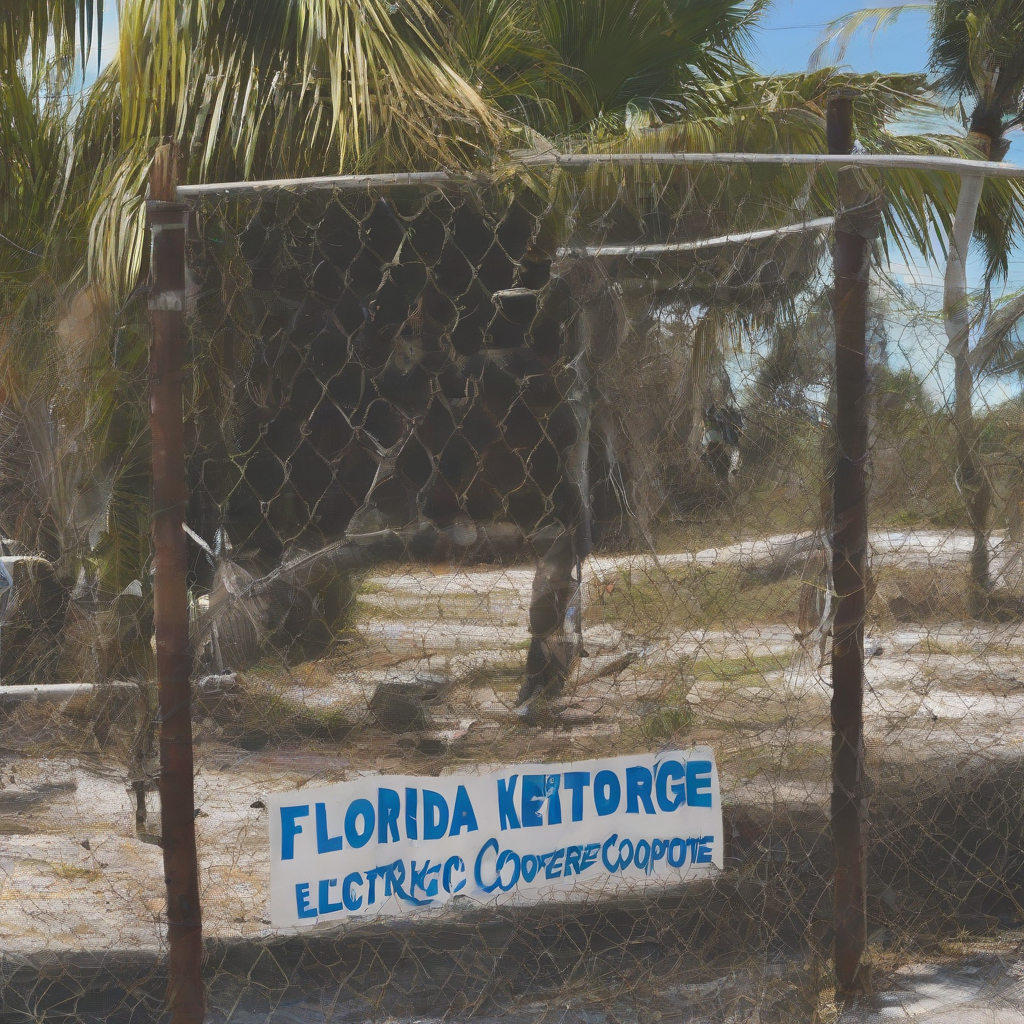Florida Keys Electric Cooperative: Powering Paradise, Navigating Challenges
The Florida Keys Electric Cooperative (FKEC) holds a unique and vital position, providing electricity to a geographically dispersed and environmentally sensitive archipelago. Its operations are far from straightforward, encompassing the complexities of island life, hurricane preparedness, and the ever-present need for sustainable energy solutions. This in-depth look explores the history, operations, challenges, and future prospects of FKEC.
A History Forged in Isolation and Innovation
The formation of FKEC stems from the inherent challenges of providing power to the Florida Keys. Unlike mainland areas with extensive grid infrastructure, the Keys required a different approach. Early electrification efforts were often localized and inefficient, highlighting the need for a centralized and cooperative model. The cooperative structure emerged as a solution, empowering local residents to collectively address their energy needs. This history of self-reliance and community involvement continues to shape FKEC’s identity and operations today.
- Early electrification efforts focused on smaller, isolated systems.
- The cooperative model fostered community ownership and control.
- Geographic isolation necessitated innovative solutions for power generation and distribution.
- Early challenges included limited resources and technological limitations.
The Operational Landscape: A Balancing Act
Serving the Florida Keys presents a unique set of operational challenges. The scattered nature of the islands, coupled with the fragility of the environment, demands a carefully considered approach to power generation, distribution, and maintenance. FKEC must balance the need for reliable power with the imperative to minimize environmental impact. This involves navigating complex logistical hurdles, employing specialized equipment, and adhering to stringent environmental regulations.
- Power generation involves a mix of sources, potentially including fossil fuels, renewable energy, and purchased power.
- Underground cabling is often preferred to minimize visual impact and protect against storm damage.
- Maintaining the power grid across a geographically dispersed area requires specialized expertise and equipment.
- Regular inspections and maintenance are crucial to ensure reliability and prevent outages.
- Emergency response protocols are vital given the vulnerability of the Keys to hurricanes and other natural disasters.
Hurricane Preparedness: A Defining Aspect of FKEC’s Mission
The Florida Keys are situated in a hurricane-prone region, making hurricane preparedness a paramount concern for FKEC. Extensive investment in infrastructure hardening, emergency power generation, and rapid restoration capabilities is crucial. The cooperative plays a vital role in ensuring the community’s resilience during and after hurricane events. Regular drills, detailed emergency plans, and strong communication with residents are essential components of FKEC’s hurricane readiness strategy.
- Investing in hardened infrastructure to withstand high winds and flooding.
- Maintaining backup generators and fuel reserves for critical facilities.
- Developing detailed emergency response plans and training personnel.
- Establishing robust communication systems to keep residents informed during emergencies.
- Implementing rapid restoration protocols to minimize outage durations after storms.
- Working with other agencies and organizations to coordinate emergency response efforts.
Environmental Stewardship: A Commitment to Sustainability
The Florida Keys’ unique ecosystem necessitates a strong commitment to environmental sustainability. FKEC recognizes its responsibility to minimize its environmental footprint and is actively pursuing opportunities to incorporate renewable energy sources into its power generation mix. This commitment involves careful consideration of environmental impacts throughout the entire lifecycle of its operations, from power generation to waste management.
- Exploring and implementing renewable energy technologies, such as solar and wind power.
- Improving energy efficiency through smart grid technologies and demand-side management programs.
- Minimizing waste generation and implementing responsible waste disposal practices.
- Protecting sensitive habitats and minimizing impacts on wildlife.
- Adhering to stringent environmental regulations and permitting processes.
- Investing in research and development of sustainable energy solutions.
Challenges and Future Directions
Despite its successes, FKEC continues to face significant challenges. These include the high cost of maintaining and upgrading infrastructure in a challenging geographic environment, the need for continuous investment in hurricane preparedness, and the ongoing pursuit of sustainable energy solutions. Balancing the needs of a growing population with environmental protection also remains a key consideration. The future of FKEC will involve navigating these challenges while ensuring reliable and affordable electricity for the residents of the Florida Keys.
- Managing the high costs associated with infrastructure maintenance and upgrades.
- Balancing the need for reliable power with environmental concerns.
- Adapting to the changing energy landscape and integrating renewable energy sources.
- Addressing the challenges of population growth and increasing energy demand.
- Investing in workforce development and training to maintain expertise.
- Enhancing communication and transparency with its members and the community.
Community Engagement and Member Relations
As a cooperative, FKEC’s success depends on strong community engagement and positive member relations. Open communication, transparent decision-making, and responsive customer service are vital for maintaining trust and fostering a sense of shared ownership. Regular member meetings, educational outreach programs, and proactive engagement with community stakeholders are essential for building and maintaining a strong cooperative spirit.
- Regular communication with members through newsletters, website updates, and social media.
- Opportunities for members to participate in decision-making processes.
- Responsive customer service to address member concerns and inquiries.
- Educational outreach programs to promote energy conservation and efficiency.
- Collaboration with local organizations and community groups.
- Transparency in financial reporting and operational decisions.
Technological Advancements and Smart Grid Initiatives
FKEC is actively pursuing the integration of smart grid technologies to improve the efficiency, reliability, and resilience of its power grid. This involves investing in advanced metering infrastructure, real-time monitoring systems, and automated outage management capabilities. These advancements will enhance operational efficiency, reduce energy losses, and improve the overall customer experience.
- Implementing advanced metering infrastructure (AMI) for real-time data collection and analysis.
- Utilizing smart grid technologies for improved grid management and outage response.
- Investing in data analytics to optimize grid operations and energy efficiency.
- Exploring the integration of distributed generation resources and microgrids.
- Developing cybersecurity protocols to protect critical infrastructure.
- Staying abreast of technological advancements in the energy sector.
Conclusion (Omitted as per instructions)
